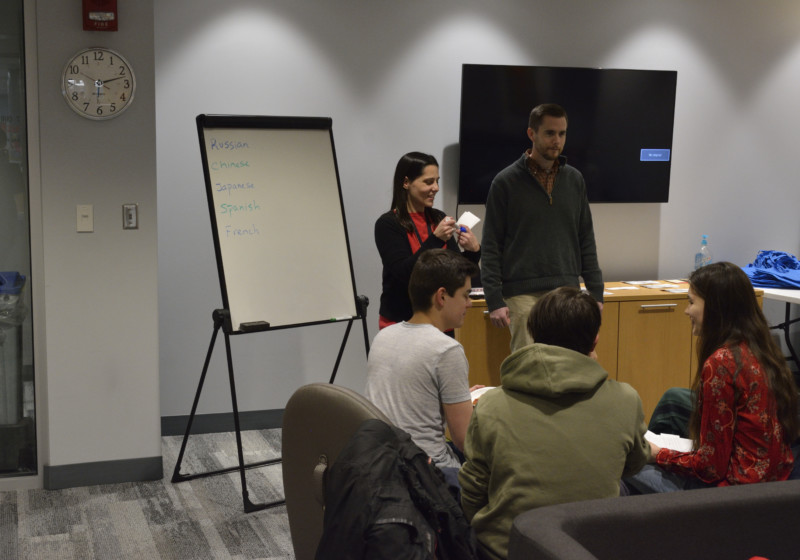The Language Center’s first Trivia Night tested students’ knowledge on different languages and their histories this past Friday at Douglass Commons.
“We decided to conduct this event when the weather is nasty so that students who have nowhere to go and stay on campus can come and find a cozy shelter during a cold winter day,” Language Center Director Teresa Valdez said.
According to Valdez, the idea for Trivia Night came a year ago from junior and team-member Elizabeth de Los Reyes. The event engaged students with languages and showcased the services that the Language Center provides.
The music during the games was not accidental either — the organizers played famous songs in languages that are offered at UR.
Participants competed in small groups that each represented a different language and country. There were five teams in total: Russia, China, Japan, Spain, and France. The game consisted of four rounds with each round consisting of three questions relating to the following topics: literature, language, geography, culture, and history.
After a few warm-up questions pertaining to how people greet each other in different languages, what continent Turkey is found in, and who was the first man to fly to the moon, the questions became increasingly difficult.
Each round offered an increasing amount of points a team could receive. The final question was worth 20 points. If a team did not it answer it correctly, the points were deducted.
Some of the more difficult questions asked contestants to identify the language of the renowned track “Hakuna Matata” from the Disney movie “The Lion King.” In addition, they were asked the translation of René Descartes’ famous statement, “Cogito, ergo sum.” Contestants were also challenged to determine how many Nobel prizes in literature the countries they represented had.
“I think you are going to kill me after I will read the question. Remember, we have pizza,” Valdez said before the third round.
In the meantime, students enjoyed pizza, snacks, and beverages while sharing their linguistic interests. Most of the participants knew two to three languages. Others knew more, such as first-year Bartek Jezierski from Poland, who can speak English, Polish, German, Spanish, and Russian.
Finally, the final question was asked: “What is the most common name of the three kings of Scotland?” Only a few teams were able to get the correct answer — Alexander.
The winners from first to third place were Germany, Japan, and Russia, respectively. All five teams were given a prize — a blue shopping bag, a magnet, and mini-goblets.
However, some students believed the most important prize of the evening was the process of the game — how students from diverse backgrounds and cultures were able to participate in a friendly competition, and share their mutual love of languages.

